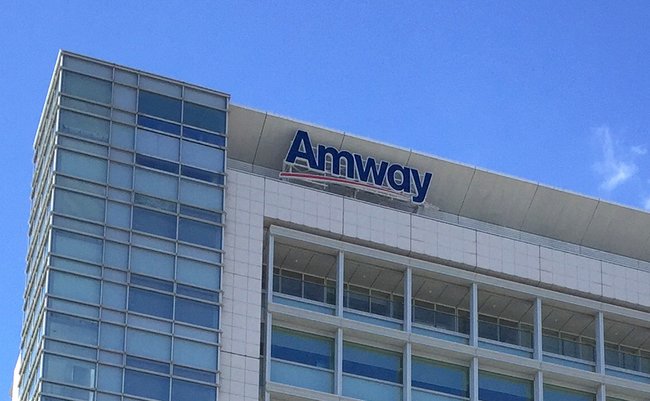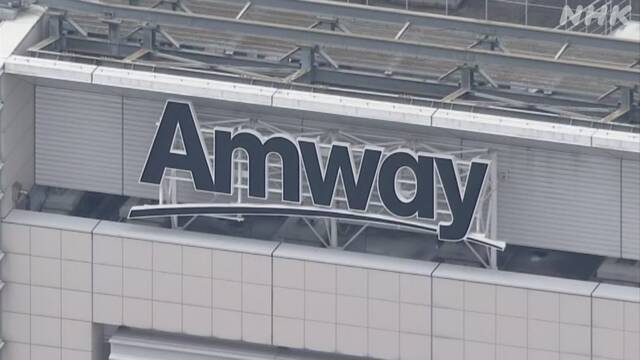On October 14, the Consumer Affairs Agency issued a six-month suspension order to Amway Japan LLC (Shibuya-ku, Tokyo) for violating the Specified Commercial Transactions Law by soliciting customers without disclosing the company name or purpose of the multilevel marketing transaction (pyramid scheme). This is the first administrative action against Amway Japan LLC.
The Consumer Affairs Agency confirmed the violation.

According to the Consumer Affairs Agency, it confirmed four types of violations: soliciting without telling the customer the name of the company or the purpose of the solicitation; soliciting by taking the invited party into the home or office without telling the customer the purpose of the solicitation; soliciting unilaterally without regard to the intentions of the party; and failing to deliver a written contract before concluding the contract. The company confirmed four types of violations.
The company’s main business is a network business in which members are compensated for soliciting other members. According to its website, the company was founded in May 1979 with capital of 5 billion yen and 373 employees as of June 2021. The company handles a wide range of products, from daily necessities to health foods, and its sales in 2021 amounted to 98.457 billion yen.
According to the agency, the number of complaints about Amway received by consumer affairs centers nationwide was 317 in FY 2019, 257 in FY 2020, 270 in FY 2021, and 109 in FY 2022 (as of September 15).
◇Emails to members indicating a desire to continue business.
The Consumer Affairs Agency has taken several cases of violations of the Special Commercial Code, and has ordered the suspension of new solicitation transactions and further improvement efforts. This was part of a letter sent to members by Amway Japan LLC (Shibuya-ku, Tokyo), a major multi-facility in the industry, prior to the announcement of the administrative action by the Consumer Affairs Agency. The letter also states, “We will not tolerate any illegal activities,” and shows the company’s desire to continue its business.
In addition to employees, Amway Japan LLC has members called ABOs (Amway Business Owners) who are responsible for sales. According to the company’s website, there are approximately 690,000 ABOs, who sell products purchased at member prices to their acquaintances and friends. Under the system, the difference between the selling price and the member’s price is the member’s profit, and the more the product is sold, the more the member is rewarded.
There is a hierarchy of about 20 “pin levels,” and the higher the level, the more benefits the member receives. The company touted its “effort-based compensation system,” saying, “Opportunities are provided equally, without regard to experience, gender, or educational background.
On the other hand, the company’s aggressive solicitation to sell its products has become a problem. Last November, two ABOs were arrested by Kyoto police for violating the Specified Commercial Transactions Law by taking a woman they met on a matching app to an esthetic salon without informing her of their intention to register as members of the company. This is believed to be the first time in Japan that an ABO has been charged with violating the law in connection with solicitation for the company, and police and administrative agencies are stepping up their surveillance.
Some of the ABOs are believed to make their living mainly by trading commodities, and if they are ordered to cease trading for six months, some of them may face difficulties in their lives. Firm monitoring is still needed to prevent illegal pyramid schemes from hiding under different names and creating new pyramid scheme victims.


コメント